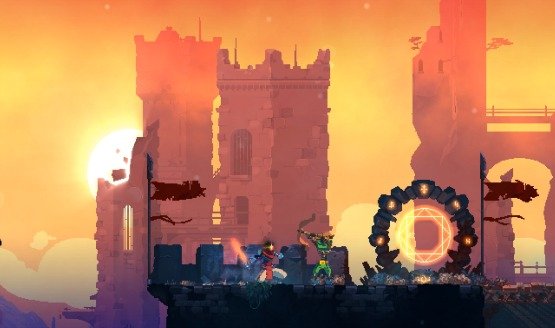Motion Twin developed Dead Cells, the rogue-like that’s known for its pretty visuals and brutally hard gameplay. While some fans will interpret this difficulty as “unfair,” the one thing that’s definitely “fair” is the pay distribution at Motion Twin. Fair as in equal, at least.
Workers’ rights and treatment has always been a topic of discussion in the industry, but recently that discussion has become far more mainstream. If you follow video game news, it’s impossible not to have heard discussion of crunch, firings, layoffs, etc. So Motion Twin’s approach is bound to turn some heads.
“Motion Twin describes itself as an ‘anarcho-syndical workers’ cooperative. What this means in practical terms is that all of its eleven workers are, in theory, equal. Same pay, same say,” writes Nathan Grayson, a reporter from Kotaku who has shed light on these business practices.
We actually just use a super basic formula: if a project finds success, people are basically paid more in bonuses, and everyone is paid the absolute same way, said longtime Motion Twin game designer Sébastien Bénard in an email. The devs and the artists are paid the same amount of money, and people like me who have been here for 17 years are paid the same amount as people who were recruited last year.
In addition to equal pay, Bénard says everyone on the team also has an equal say in the decision making. If a consensus can’t be reaching, it’s put to a vote. Small decisions are made in passing, over Slack, but larger decisions require team meetings.
None of this is to say that there aren’t plenty of challenges occurring on a daily basis at Motion Twin, rather it’s to highlight one studio’s approach to ethical business practices that deviates from the typical corporate structures of the world at large. The threat of burnout is forever looming over the heads of every employee at this small studio. On that front, Bénard encourages tired employees to go home because as he states, “It’s obviously better to lose a few work hours than a colleague. There’s absolutely no discussion about that.” While some of you may wonder why the studio, that seems to be having a great deal of success with Dead Cells, doesn’t simply expand, rest assured that expansion invites its own problems. Sébastien Bénard explained:
Years ago, we did grow a lot, but this wasn’t a great experience. We lost much of what made Motion Twin a nice company to work in, and during the process, many people lost this important motivation and focus that worked for us. I think it requires quite a clever structure to go beyond 15 people with a similar equitable design, because you’ll need innovative systems to keep everyone involved.
It’s easy for us as gamers to only think about the end product: When does the game release? Is the game good enough? When will XYZ be fixed with a patch? Will there be DLC? And so on. Often times we forget the human side of things, but it’s important to remember not just because empathy is important but because how workers are treated will affect the games we interact with directly.
What do you think about Motion Twin’s approach? And what studios do you know that seem to have excellent working conditions? Let us know in the comments. If you’re interested in playing the game yourself, the official release is August 7th, 2018 on PS4, Xbox One, Nintendo Switch, PC, Mac, and Linux. You can even snag some physical copies for a reasonable price via Signature Edition Games.
[Source: Kotaku]






